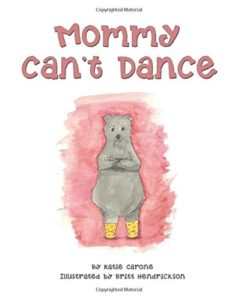It’s a hard to be a sick mom. For most mothers, a few days of illness may mean a back-up of laundry and a night or two of frozen pizza or cold cereal for dinner. For those of us moms that are chronically ill, it’s a whole other ball game. Certainly we have to adapt, get creative, and employ as many mom hacks as we can (i.e. Amazon prime, grocery pick up, self-serve kid snacks, and yes, we still have an above average number of cereal dinners). Beyond the physical demands and limitations, however, are the mental and emotional obstacles that we face. The mom guilt is present enough when you are healthy; it can be even more crushing when you are not.
• So how can you be a sick mom and still be the mom your kids need you to be?
• How do you let go of the ever-present mom guilt, accept your limitations, and be happy with the mom you ARE, when you know you may never meet up to the idealistic nature of the mom you want to be?
• How can you help your kids cope with your chronic illness when you are barely hanging on yourself?
These are all questions I have been faced with over the last several years as I have been mostly homebound and often bed-ridden from autoimmune disease and POTS (Postural Orthostatic Tachycardia Syndrome). I have spent so many months of my kids’ lives momming from bed. Though certainly not ideal, it is my current reality.
I have learned a lot of lessons in these past years (more than I can relay in one article). But here are five key tips that have helped me to mother while sick.
1. Go back to the basics. I am a dreamer, as well as a bit of a perfectionist. I love going big, bold, and over the top. But these days I am about as far from a Pinterest mom as I can get. It’s amazing how my list of priorities has changed over the years. I’ve found that a lot of things that I used to consider priorities, really aren’t that important. I’ve had to go back to the basics and focus on what really matters most. Instead of caring if my kid’s clothes are matching and their hair is done perfectly, I’m more concerned about if their clothes are semi-clean and they’ve bathed at least once this week. (Seriously, I have a son that wore his pajamas almost every day this summer. But, in the long run, does that really matter?) My kids are clothed, fed, and loved. Sometimes that’s about all we can manage—and that’s okay.
2. There’s no one way to be a perfect mom. We all have different strengths, abilities, circumstances, and certainly different children. What is right for one family or child may not be right for another—thus there is no point in comparing! Whether healthy or sick, we all have limitations, and though there are always ways that I can improve as a mother, accepting my limitations, along with the belief that I am the mother meant for my kids, has gone a long way to help me let go of some of that mom guilt. I may not always make it to their performances or games, but I can give them encouragement and love. I can still be their cheerleader on the sidelines at home. I may not always be the mother I WANT to be, but I can still be the mom my kids NEED me to be.
3. Provide a listening ear. I have the unique perspective of being a chronically ill mom who grew up with a chronically ill mom. My mom had Lupus and Sjogren’s disease. She was always tired. She worked during the week, tried to make wholesome dinners when she could, made attempts at keeping the household running, but she spent almost every evening and weekend in bed because she had overdone it during the day or week. Yes, there was disappointment when she didn’t make it to a dance performance or a choir competition, but it sure meant a lot more to me the times that she was there. And even more important than her coming to my events, was being the recipient of her hugs and attention. I knew she didn’t feel well or have a lot of energy, so the rare privilege of spending time with her to listen to my joys and woes (especially with 5 other siblings) was something I treasured.
I may not be able to take my kids to the zoo and the splash park or be able to help at their school, and there are even times I have to send my kids away because I’m in too much pain to handle a simple conversation, but there are also times that I can give them my undivided attention. Even though just listening to my kids can be draining for me, it’s one of the few things I can do for them that will have lasting meaning (even if it is just hearing about their favorite Pokemon or a similarly “fascinating” subject for the umpteenth time). I want my kids to know that they are loved, respected, and appreciated. I can help my kids feel important by listening to what they have to say, and I can even do it while lying in bed.
4. Remember the lessons your kids are learning. I have learned a lot of things from my circumstances, and though I don’t much care for life’s teaching methods, I know my kids are learning some valuable life lessons as well. They are learning patience when I can’t help them with something right away. They are learning self-sufficiency when they have to do something on their own. They are learning compassion as they look out and care for me and each other. Knowing that my kids have grown in strength, empathy, and resilience is at least a small consolation to being a chronically ill mom.
5. Empower yourself and your kids. Having a chronic illness can be very debilitating—not just physically, but mentally too. It’s demoralizing to feel so powerless. How can you help your kids or others when you can’t even help yourself?
Although I had been struggling with my health for years, I had been able to maintain some semblance of functionality up until 2 years ago when things changed drastically for the worse, and I was bound to my bed for several months. I struggled with my new reality, and I wasn’t the only one—my kids were suffering too.
We have a family tradition of sharing good news/ bad news every night. I started to hear my kids repeating the same news night after night. “My good news is that I love mom. My bad news is that I miss mom.” I was still right there, but my kids missed me! They missed the mom that I had been—and so did I.
We all felt pretty helpless. My kids felt scared and powerless to help me, and I felt impotent to help my kids or myself. I needed a way to empower them, and to let them know that even though things had changed, my love for them hadn’t.
In a spark of inspiration one night, I wrote a children’s book for my kids called “Mommy Can’t Dance.” I outlined the things my kids could do to help me now, like coloring pictures and bringing me water, as well as the things I could still do for them, like reading stories and singing songs. Most importantly I emphasized that even though things had changed, our love for each other was still the same.
Being a chronically ill mother is a daily struggle for me and my kids, but it has brought me a great deal of perspective on what it means to be a parent, and what it is that my kids really need. I can’t do everything I want to for my kids, but I can continue to mother them and love them in the best way I know how—and I have to believe that is enough!
Written by Katie Carone
Click here for Katie’s blog: Mommy Can’t Dance, about a chronically ill mom seeking to help her kids and others while finding fulfillment and happiness when living and parenting from bed.
Click here to learn more about Katie’s books, “Mommy Can’t Dance” and Chronic Illness Daily Tracker, Symptom and Activity Journals



 Lucinda Bateman, MD, is a renowned clinician, researcher, and educator. Her Johns Hopkins University Medical School training instilled an approach to care that she has employed throughout her career - the patient comes first and the unknown or unexplained does not equate to a lack of proper and compassionate care. Since starting her own practice in 2000, she has served on six boards or committees, been the principal investigator for 45 studies, authored/coauthored 40 journal articles, served as adjunct instructor and adjunct assistant professor in the University of Utah Departments of Preventative Medicine, Internal Medicine, and Anesthesiology, and lectured around the world.
Lucinda Bateman, MD, is a renowned clinician, researcher, and educator. Her Johns Hopkins University Medical School training instilled an approach to care that she has employed throughout her career - the patient comes first and the unknown or unexplained does not equate to a lack of proper and compassionate care. Since starting her own practice in 2000, she has served on six boards or committees, been the principal investigator for 45 studies, authored/coauthored 40 journal articles, served as adjunct instructor and adjunct assistant professor in the University of Utah Departments of Preventative Medicine, Internal Medicine, and Anesthesiology, and lectured around the world.